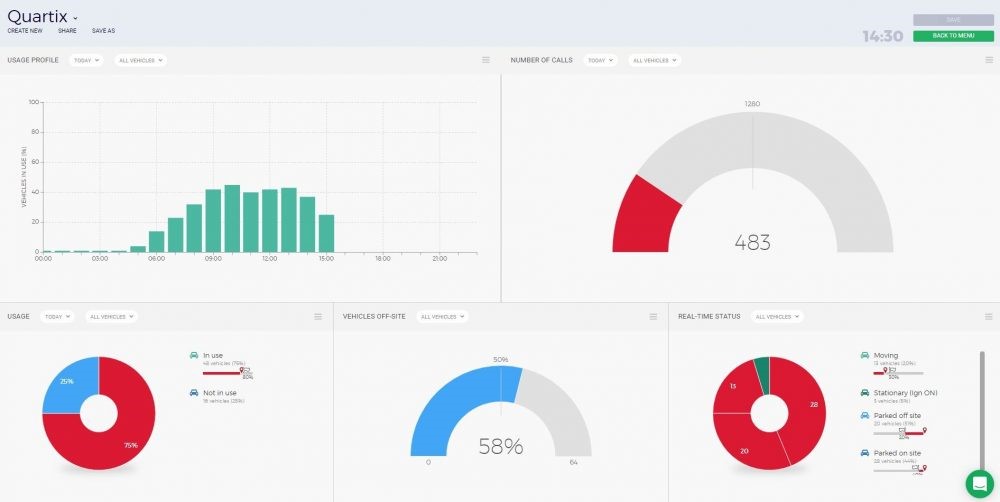Discover how inefficient construction fleet management could be silently draining your profits – and what industry leaders are doing about it
The True Cost of Inefficient Fleet Management
In today’s competitive UK construction landscape, inefficient fleet management isn’t just an operational inconvenience – it’s a significant financial burden that could be costing your business millions of pounds annually. Recent industry studies reveal that construction companies lose an average of £250,000 per year due to poor fleet management practices. This staggering figure encompasses various hidden costs that many organisations fail to recognise until they significantly impact their bottom line. The construction sector in Britain, valued at over £110 billion annually, faces unique challenges in managing diverse equipment fleets ranging from heavy machinery to light vehicles. The complexity of modern construction projects, combined with rising operational costs and stringent regulatory requirements, makes efficient fleet management more crucial than ever.
Understanding Modern Fleet Management Solutions
The evolution of construction fleet management in the UK has been revolutionary, with cutting-edge telematics and management platforms transforming how companies oversee their equipment assets. Modern fleet management solutions integrate sophisticated GPS tracking, real-time monitoring, and predictive analytics to provide unprecedented visibility into fleet operations. For instance, leading UK construction firm Balfour Beatty reported a 30% reduction in fleet-related costs after implementing a comprehensive telematics solution. These systems offer real-time insights into vehicle location, fuel consumption, maintenance needs, and driver behaviour, enabling proactive decision-making and improved operational efficiency.
The Five Hidden Cost Centers Draining Your Profits
1. Inefficient Equipment Allocation and Utilisation
Poor asset tracking and allocation represent one of the most significant hidden costs in construction fleet management. Studies show that the average construction equipment sits idle for up to 40% of its operational hours, resulting in substantial revenue loss. This inefficiency often leads to unnecessary equipment rental costs and project delays, with some UK construction firms reporting losses of up to £10,000 per day due to misallocation of resources.
2. Reactive vs Preventive Maintenance
- Emergency repairs cost 3-5 times more than planned maintenance
- Unplanned downtime can cost up to £400 per hour per piece of equipment
- The average reactive maintenance incident results in 4-8 hours of lost productivity
- UK construction companies spend 20% more on maintenance when operating without a preventive strategy
3. Fuel Management and Consumption
With fuel prices in the UK remaining volatile, inefficient fuel management can significantly impact operational costs. Poor driver behaviour, suboptimal route planning, and excessive idling can increase fuel consumption by up to 25%. Implementation of fuel management systems has shown potential savings of £3,000-£5,000 per vehicle annually for construction fleets.
4. Administrative Overhead and Manual Processes
- Manual documentation and paperwork can consume up to 20 hours per week of staff time
- Paper-based systems lead to an average of 3% revenue loss through billing inaccuracies
- Digital automation can reduce administrative costs by up to 70%
- Traditional methods result in approximately 15% data entry errors
5. Safety and Compliance Issues
Non-compliance with UK safety regulations and accidents can result in substantial financial penalties and increased insurance premiums. The average cost of a workplace transport accident in construction is £50,000, not including potential legal fees and reputational damage.
Technology Solutions and ROI Analysis
Modern fleet management systems deliver measurable returns through improved efficiency and cost reduction. UK construction companies implementing comprehensive fleet management solutions report average ROI of 200-300% within the first year. Key benefits include reduced fuel consumption (15-20% savings), lower maintenance costs (25-30% reduction), and improved asset utilisation (35-40% increase).
Implementation Strategies for Success
- Conduct a thorough fleet audit and needs assessment
- Select technology partners with UK construction industry expertise
- Develop a phased implementation plan
- Provide comprehensive staff training and support
- Establish clear KPIs and monitoring protocols
- Regular review and optimization of system performance
Future-Proofing Your Fleet Management
The future of construction fleet management in the UK is rapidly evolving, with emerging technologies like artificial intelligence, machine learning, and IoT integration becoming increasingly prevalent. Industry experts predict that by 2025, 75% of construction fleets will be fully connected through smart technology. Companies investing in these advanced solutions now are positioning themselves for enhanced competitiveness and operational efficiency.
Taking Action: Next Steps for Cost-Effective Fleet Management
To begin optimizing your fleet operations and reducing costs, start with these essential steps: conduct a comprehensive fleet audit, identify key pain points, research suitable technology solutions, and develop a staged implementation plan. Remember, every day of delayed action in improving fleet management efficiency could be costing your business thousands of pounds. Contact industry experts and technology providers to explore how modern fleet management solutions can transform your operations and protect your bottom line.
FAQ
What skills do you need to be a fleet manager?
You need to have a great understanding of how to be a good fleet manager. A top-tier fleet manager needs strong communication, an in-depth grasp of vehicle upkeep, a solid understanding of compliance with regulations and the ability to analyze data with precision.
How much does a manager at fleet Feet make?
Average Fleet Feet Store Manager yearly pay in the United States is approximately $44,184, which is 19% below the national average.
Is fleet management worth it?
The Benefits of Effective Fleet Management. The fundamental objective of fleet management is simple. To maintain vehicles, control costs, and reduce risks involving company transportation and those driving. It’s the beating heart of business operations and profitability.
What is basic fleet management?
Fleet management refers to all actions that need to take place to keep a fleet running efficiently, on time, and within budget. It is the process used by fleet managers to monitor fleet activities and make decisions about proper asset management, dispatch and routing, and vehicle acquisition and disposal.
Sources
[1] https://www.geotab.com/industries/construction-fleet/
[2] https://gomotive.com/glossary/construction/construction-fleet-management/
[3] https://www.samsara.com/industries/construction


Leave a Reply